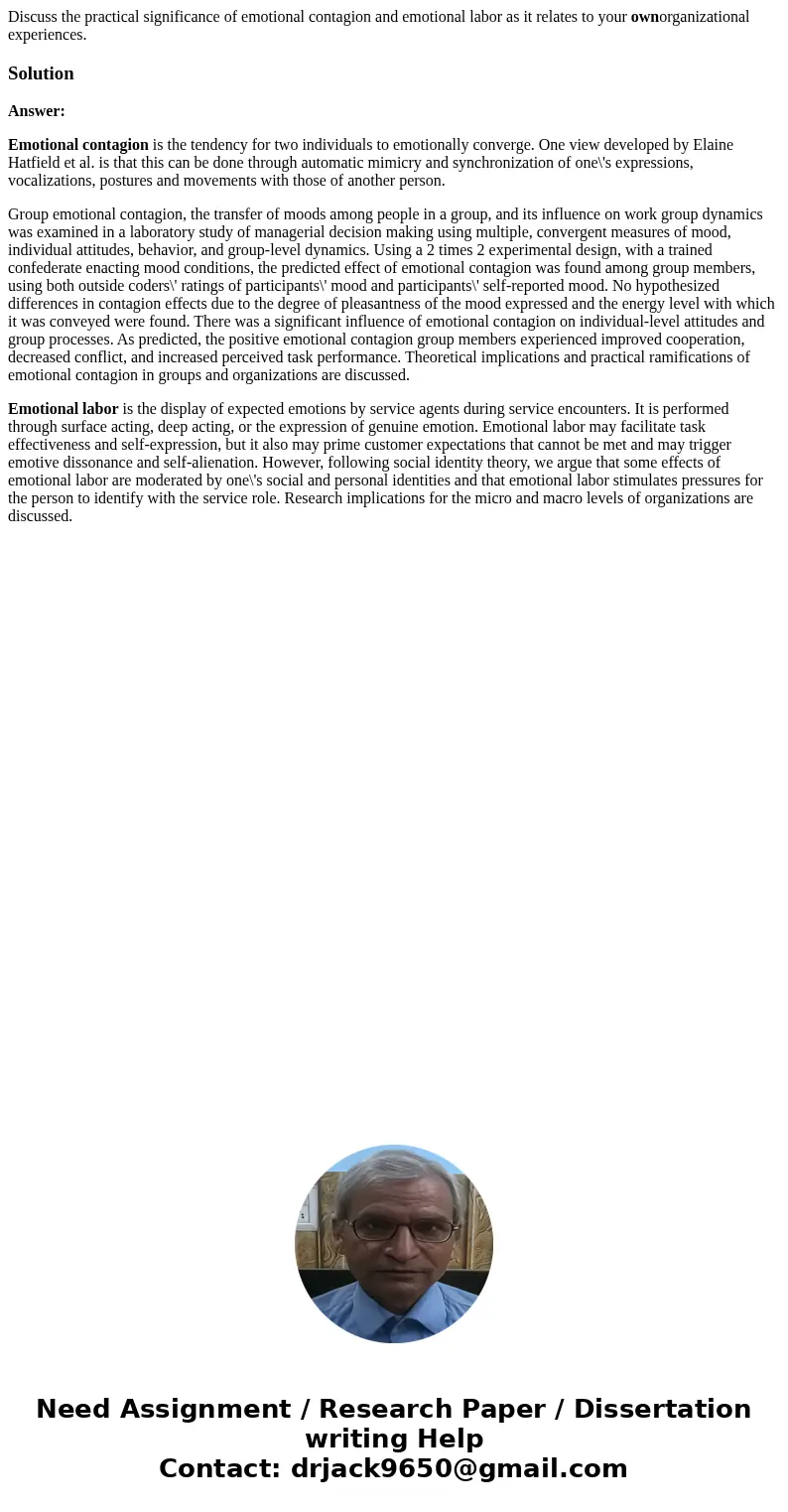Discuss the practical significance of emotional contagion an
Discuss the practical significance of emotional contagion and emotional labor as it relates to your ownorganizational experiences.
Solution
Answer:
Emotional contagion is the tendency for two individuals to emotionally converge. One view developed by Elaine Hatfield et al. is that this can be done through automatic mimicry and synchronization of one\'s expressions, vocalizations, postures and movements with those of another person.
Group emotional contagion, the transfer of moods among people in a group, and its influence on work group dynamics was examined in a laboratory study of managerial decision making using multiple, convergent measures of mood, individual attitudes, behavior, and group-level dynamics. Using a 2 times 2 experimental design, with a trained confederate enacting mood conditions, the predicted effect of emotional contagion was found among group members, using both outside coders\' ratings of participants\' mood and participants\' self-reported mood. No hypothesized differences in contagion effects due to the degree of pleasantness of the mood expressed and the energy level with which it was conveyed were found. There was a significant influence of emotional contagion on individual-level attitudes and group processes. As predicted, the positive emotional contagion group members experienced improved cooperation, decreased conflict, and increased perceived task performance. Theoretical implications and practical ramifications of emotional contagion in groups and organizations are discussed.
Emotional labor is the display of expected emotions by service agents during service encounters. It is performed through surface acting, deep acting, or the expression of genuine emotion. Emotional labor may facilitate task effectiveness and self-expression, but it also may prime customer expectations that cannot be met and may trigger emotive dissonance and self-alienation. However, following social identity theory, we argue that some effects of emotional labor are moderated by one\'s social and personal identities and that emotional labor stimulates pressures for the person to identify with the service role. Research implications for the micro and macro levels of organizations are discussed.

 Homework Sourse
Homework Sourse